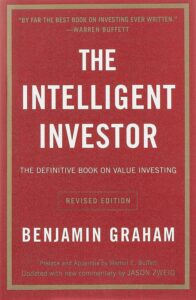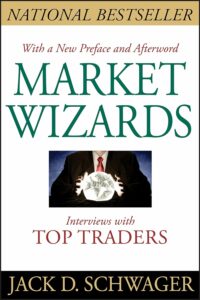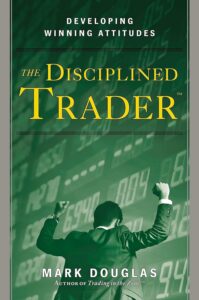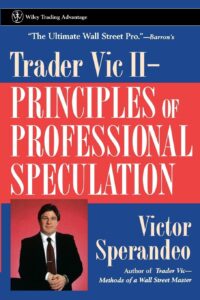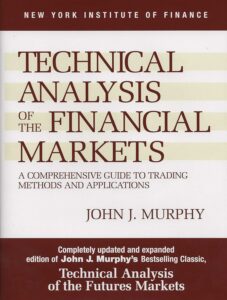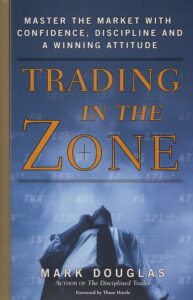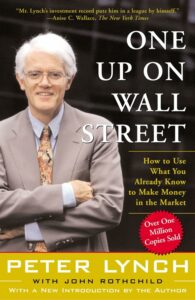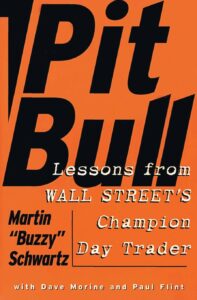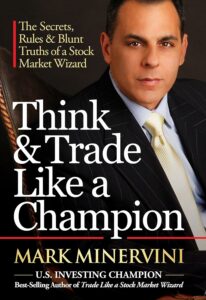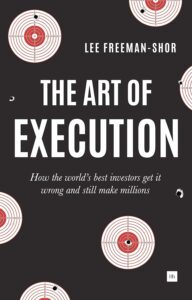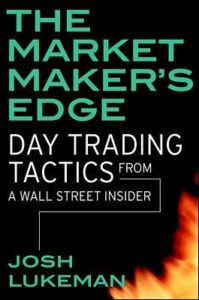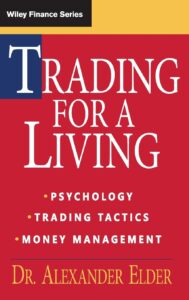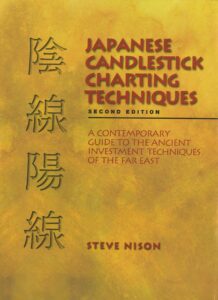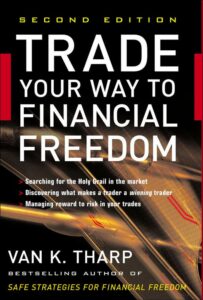Read These 15 Financial Trading Books to Master the Markets
In the world of financial trading, profits and losses are both very real possibilities. Traders may often place a trade hoping that the market will swing their way, but the reality is that they may have missed key trading practices and checks that would have enabled them to minimise their risk.
Understanding these practices, discovering the workings of financial markets, and learning about trading psychology is an essential parts of any successful trader's approach. And one of the ways to learn is from those that trade themselves.
For those who don't know where to start, or are looking for inspiration, here's a list of the top 15 most popular books on trading worldwide.
Table of Contents:
Reminiscences of a Stock Operator by Edwin Lefevre (1923)
Edwin Lefevre's "Reminiscences of a Stock Operator" is a fictionalised narrative inspired by the life of Jesse Livermore, a legendary figure in the early 20th-century stock market. The book provides a captivating journey through Livermore's triumphs and tribulations, offering insights into market psychology, risk management, and the emotional rollercoaster that characterises the stock market.
The Intelligent Investor: The Definitive Book on Value Investing by Benjamin Graham (1949)
Often regarded as the bible of value investing, Benjamin Graham's "The Intelligent Investor" is a foundational text for traders. Graham, a renowned economist and investor, imparts principles of fundamental analysis, a long-term perspective, and disciplined investing. The book provides a guide for both investors and traders, stressing the importance of thorough research, risk management, and a patient approach to building wealth through financial markets.
Market Wizards: Interviews with Top Traders by Jack D. Schwager (1989)
In "Market Wizards," Jack D. Schwager takes readers behind the scenes with some of the most successful traders of the 1970s and 1980s. Through insightful interviews, Schwager uncovers the diverse trading strategies and approaches that propelled these individuals to market wizardry. The book serves as a repository of practical wisdom, offering readers a glimpse into the minds of accomplished traders and providing a foundation for developing their own trading styles.
The Disciplined Trader: Developing Winning Attitudes by Mark Douglas (1990)
In "The Disciplined Trader," Mark Douglas delves into the psychological aspects of trading and the critical role of discipline and emotional control. This book is a guide to maintaining focus, managing emotions, and avoiding common pitfalls that can hinder a trader's success. Douglas explores the mindset required for consistent and profitable trading, offering practical insights and strategies to overcome psychological barriers.
Trader Vic II: Principles of Professional Speculation by Victor Sperandeo (1994)
Victor Sperandeo, also known as "Trader Vic," shares his trading knowledge in "Trader Vic 2" as a guide to a spectrum of trading strategies, risk management techniques, and a mindset for consistent success in the markets. Sperandeo's insights are rooted in his extensive experience as a trader and offer readers practical and actionable perspectives on navigating the complexities of financial markets.
Technical Analysis of the Financial Markets by John J. Murphy (1999)
John J. Murphy's "Technical Analysis of the Financial Markets" is a comprehensive guide for traders interested in understanding charts, patterns, and market trends. This book covers a wide range of technical analysis tools, including moving averages, trendlines, and various chart patterns, explaining the practical application of technical analysis in making informed trading decisions.
Trading in the Zone: Master the Market with Confidence, Discipline, and a Winning Attitude by Mark Douglas (2000)
Building on the principles discussed in "The Disciplined Trader," Mark Douglas's "Trading in the Zone" provides deeper insights into the psychological discipline necessary for consistent trading success. Douglas explores the mental aspects of trading, focusing on developing the right mindset to navigate the complexities of the market. This book goes beyond technical analysis and strategy, exploring the importance of self-awareness, emotional resilience, and keeping a disciplined approach in the face of market uncertainties.
One Up on Wall Street: How to Use What You Already Know to Make Money in the Market by Peter Lynch (2000)
Peter Lynch, a legendary fund manager, imparts his investment philosophy in "One Up on Wall Street." While not strictly a trading book, Lynch's insights into stock picking, market trends, and capitalising on investment opportunities offer valuable lessons for traders seeking a hands-on approach to the financial markets, including an understanding of the principles of active investing.
Pit Bull: Lessons from Wall Street's Champion Trader by Martin Schwartz (1999)
Martin Schwartz, also known as the "Pit Bull," shares his journey from an outsider to a successful trader. This autobiography provides readers with practical lessons and insights gleaned from years of experience in the fast-paced world of trading. Schwartz's storytelling sheds light on the excitement, trading setbacks, and pivotal moments that shaped his career.
Think and Trade Like a Champion: The Secrets, Rules & Blunt Truths of a Stock Market Wizard by Mark Minervini (2017)
Mark Minervini combines practical trading advice with a focus on mindset in this best-selling book. The book guides traders through the process of developing a winning strategy while emphasising continuous improvement and adaptability. Minervini shares his experiences and insights, offering readers a blueprint for achieving success in the markets.
The Art of Execution: How the world's best investors get it wrong and still make millions in the markets by Lee Freeman-Shor (2015)
Lee Freeman-Shor's "The Art of Execution" focuses on the critical aspect of execution in trading. By analysing the habits of successful fund managers, the book supplies valuable insights into turning trading ideas into profitable actions. Freeman-Shor's work highlights the importance of effective decision-making, risk management, and disciplined execution.
The Market Maker's Edge: Day Trading Tactics from a Wall Street Insider Kindle Edition by Josh Lukeman (2000)
Josh Lukeman, a former market maker, shares insider knowledge on gaining a competitive edge in this book. Understanding market dynamics from the perspective of a market maker provides traders with a unique advantage. Lukeman's insights offer a deeper understanding of market mechanics, order flow, and liquidity, allowing traders to make more informed decisions.
Trading for a Living: Psychology, Trading Tactics, Money Management by Dr. Alexander Elder (1993)
Dr. Alexander Elder's "Trading for a Living" combines technical analysis with the psychology of trading. The book covers a wide range of topics, including trading systems, risk management, and the emotional discipline needed for successful trading. Elder's comprehensive approach provides readers with a holistic understanding of the trading process, from technical analysis tools to the psychological aspects of decision-making.
Japanese Candlestick Charting Techniques: A Contemporary Guide to the Ancient Investment Techniques of the Far East by Steve Nison (1991)
Steve Nison's "Japanese Candlestick Charting Techniques" is an introduction to the ancient Japanese technique of candlestick charting. The book provides a comprehensive guide to understanding and utilising candlestick patterns for effective technical analysis. Nison's expertise in this form of analysis allows traders to enhance their ability to interpret market movements, identify trend reversals, and make more informed trading decisions based on chart patterns.
Trade Your Way to Financial Freedom by Van K. Tharp (1998)
Van K. Tharp's "Trade Your Way to Financial Freedom" is a holistic guide that shows traders how to create a personalised trading plan. The book covers crucial aspects such as position sizing, risk management, and the psychological elements that contribute to sustained trading success. Tharp's approach is centred on traders tailoring their strategies to their individual goals, risk tolerance, and trading styles.
Whether you are a novice looking to build a solid foundation or an experienced trader aiming to refine your strategies, the knowledge within these books is a valuable resource for navigating the complexities of the financial markets.
Finally, as you embark on your trading journey, remember that learning is a continuous process. Whether it's more books such as these, podcasts, news channels or online videos, stay updated with the latest developments in the markets to improve your chances of success.
Top 5 Blogs
 Balance Guard
Balance Guard
